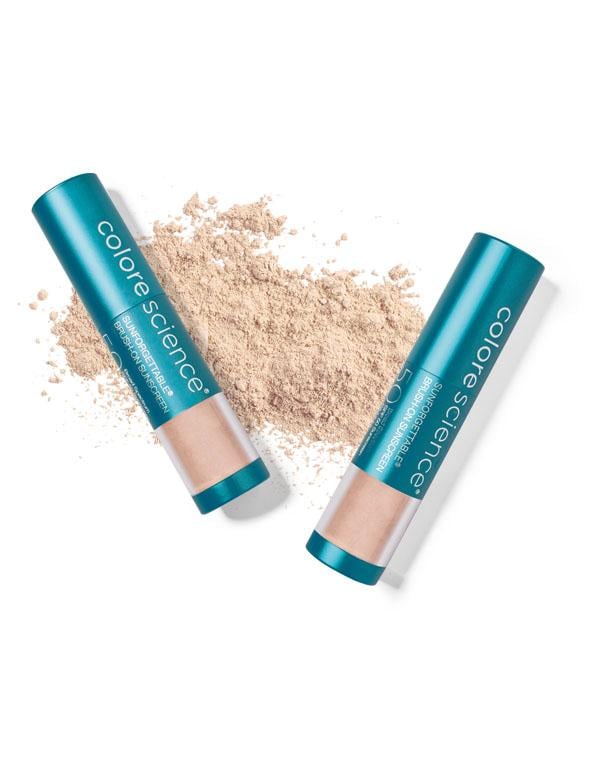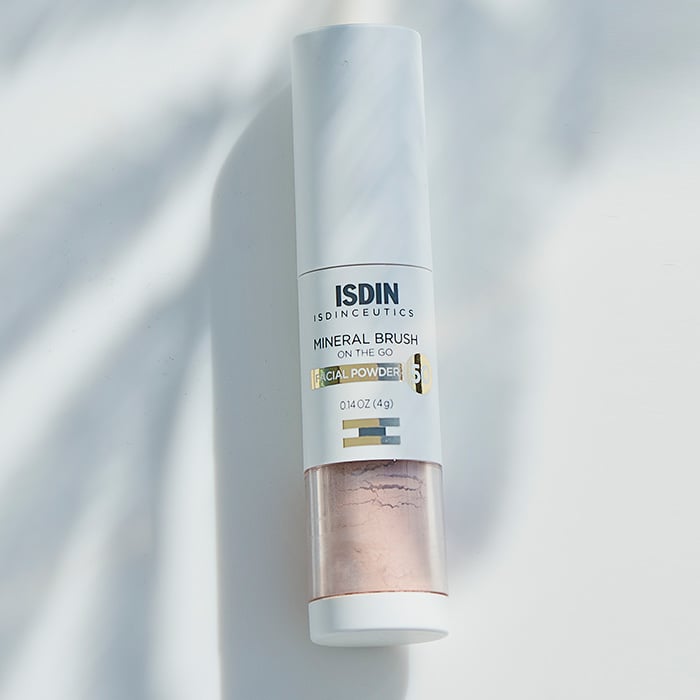When you think about sunscreen [1], a thick, white, or sometimes flat-out gross liquid in a sand-covered bottle might come to mind. Lathering this greasy lotion all over your face was never the highlight of a day in the sun, but you did what you had to do to keep your skin from getting burnt. Luckily, those days are in the past, thanks to modern advances in the skin-care world.
One of the newer innovations in the space is powder sunscreen, and everyone from beauty enthusiasts to dermatologists to non-greasy-sunscreen advocates are all about it. Imagine applying a mattifying powder that evens skin tone [2], covers blemishes, and blocks harmful UV rays. If that sounds too good to be true, we thought so, too. We decided to tap NY-based dermatologist Michelle Henry [3], MD, for insight into the world of powder sunscreen.
The Recommended Number of SPF
Dr. Henry advises people to wear SPF 50 whenever going outdoors for more than an hour. When asked about what makes an SPF higher than another, Dr. Henry said that it depends on how the product is made. "The lower SPF might be more cosmetically elegant — as in more translucent or spreadable. However, a higher concentration blocks more of the sun's rays and lengthens the time one can stay in the sun before seeing the effects of exposure on their skin."
If you don't want to use an SPF 50, the American Academy of Dermatology (AAD) recommends a minimum of SPF 30 for best protection [4]. It's also essential to reapply every two hours, whether that be with a liquid or powder sunblock.
How Effective Is Powder Sunscreen?
On its own, no. According to the FDA website, it has not authorized the marketing of nonprescription sunscreen products in the form of powders. "Cream and lotion sunscreens [5] are formulated to provide uniform and even application of the the sun protective ingredients," said Dr. Henry. "It is very difficult to ensure even application or appropriate thickness with powder sunscreens."
Because of the small particles found in powder sunscreen, ensuring that every bit of your face is adequately covered is sometimes easier said than done, which is why these tend to work better as a touch-up to your existing sunscreen regimen. "It is unlikely that people will apply enough powder evenly to provide appropriate protection. I find [powder sunscreen] best in addition to a cream or lotion sunscreen — applied in an even layer to the full face/neck — as a great way to touch up sunscreen over your makeup. It is perfect for reapplication." Ultimately, the easy-to-apply powder is most effective when layered on top of a lotion sunblock.
Are the Ingredients in Powder Sunscreen Safe For Skin?
According to Dr. Henry, zinc oxide and titanium dioxide have been used in mineral sunscreens for years and have an excellent safety profile. These naturally occurring minerals have the ability to block the sun's UVA and UVB radiation rays from getting absorbed into skin, meaning they're considered broad-spectrum (since they protect you from both). Too much exposure to UVA or UVB rays can cause skin cancer, so making sure you're protected is key when you're exposed to the sun.

